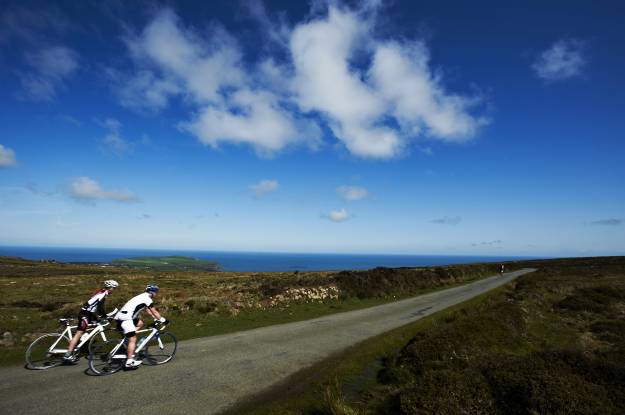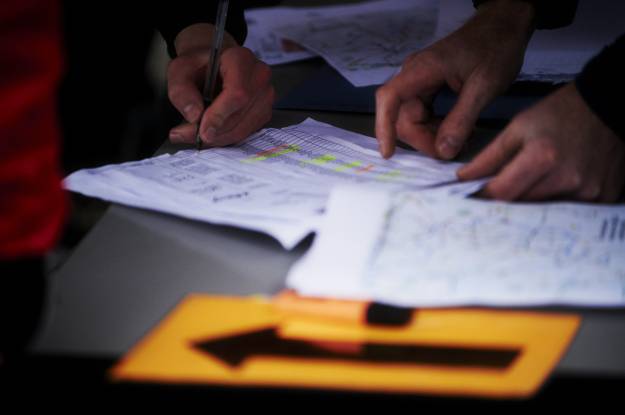As we gradually move out of lockdown, and #PrepareToReturn Scottish Cycling is here to support clubs in helping children and young people to reintegrate back into sport. Our friends at sportscotland and Children 1st have produced this comprehensive article to help support some discussions that clubs will be having
Re-connecting with each other
Experiences of lockdown will have varied significantly for children and young people. Many families may not have had access to a garden or a safe space to enable children and young people to continue exercising. There may have been limited access to devices and online facilities to connect with friends or even to do schoolwork.
We need to acknowledge that individual experience may influence the readiness for children to get back into sport. Some may be excited and motivated to pick up where they left off but for others, the return to sport might be a more difficult transition and it may take longer for them to adjust. For some children or young people with a disability, too, they may return to sport later due to the need to self- isolate for longer or when they do return, they may need to take extra precautions.
Coaches will have a key role in providing a welcoming and safe space for all children and young people when they return to sport. They will be influential in supporting and promoting children’s wellbeing during this time and taking the individual needs of each child into consideration.
Before children and young people return to structured sessions, is there an opportunity to let them talk about their experiences of lockdown and what their worries might be in coming back into sport?
Managing risk
Given the changes to how sport will be implemented to allow for social distancing measures, a risk assessment of the activities planned within the environment in which they will take place will need to be completed. This will have to take account of, not only the physical restrictions required, but also any subsequent child wellbeing and protection issues that could arise.
Enthusiasm/interest
For some children and young people, their interest in the sport may have waned during the extended break. This may mean they are disengaged or disinterested when they return, or they may choose not to return at all.
Clubs will need to think about ways to garner that interest again and re-engage with those who were club members before lockdown. Sharing of information about what the new set up will be and having an emphasis on fun, enjoyment and re-connecting will be important.
Conversely, clubs may also experience an upturn in youth membership, particularly those sports who are the first to be back on-line as children and young people, parents/carers look for opportunities
to be active again. This would be a good time for clubs to review their child wellbeing and protection procedures and practices to ensure they are robust and fit for purpose.
You can find all of Scottish Cycling Wellbeing and Protection policies and procedures here
Physical fitness
Activity levels for children will have varied during the lockdown – some having been quite active, and some having had very little physical activity at all. Also, those who were heavily involved in sport are likely to have experienced some decrease in their fitness level due to the restrictions on daily exercise early in the lockdown.
These variations in fitness levels may affect what they are able to achieve physically when they return and subsequently their enjoyment of participating. It is important, therefore, to design initial coaching sessions with this in mind.
Managing expectations
Parents/carers are central in children and young people returning to sport and attitudes may vary. Some may worry that the social distancing measures are not robust enough. Some may have enjoyed the ‘break’ from transporting children to and from coaching and events and therefore, there may be a reluctant to return to that. All these concerns are legitimate and may increase the potential for friction between parents and coaches.
A key consideration, therefore, is how communication with parents/carers is handled so that their expectations are managed about what the sport now looks like and why.
Transparency and keeping communication channels open should be standard. Information can be shared through the normal channels of the club – e.g. written information or a video on the website, WhatsApp group or Facebook page. Arranging a parents/carers meeting at the outset may also be a good option – in person or, depending on the restrictions at the time, online. An avenue for parents/carers, children and young people to be able to ask questions will be critical in helping to lower anxieties.
Mental wellbeing
A significant impact of lockdown has been on the mental wellbeing of the general population. It will have affected everyone, including children and young people, in different ways depending on individual circumstances and experiences. Some may have experienced their own mental health challenges while others may have lived with parents/carers whose mental health has been impacted by the lockdown.
Furthermore, children and young people who suffer from social anxiety may find the transition back into group activity a struggle, and if they do, may require extra support. For some there may be some general anxiety around COVID 19 and social distancing.
It is important that coaches are sensitive to children and young people’s mental wellbeing. That they are understanding that individuals will be experiencing the return to sport in different ways and that they are empathetic and supportive of this.
If coaches have concerns regarding the mental wellbeing of a child or young person and require further support, they should follow the appropriate steps in their club’s Responding to Concerns procedure.
UK Coaching has made their Mental Health Awareness course for coaches free until the 31st August, see more here
Financial hardship
With the economic effects from lockdown including furloughing and job losses, many people will have found themselves in difficult circumstances in relation to their finances.
This could impact on a return to sport for some children where their parents/carers can no longer afford organised sport. Are there measures, then, that clubs could take to support children in this situation to allow for affordable opportunities during this time? Are there other avenues for support such as grants that the local authority may offer to help children and young people to attend at a reduced rate?
Potential for increase in Child Wellbeing and Protection concerns
It is known that the number of referrals about incidents of domestic abuse and child abuse increased during the lockdown period. There will be many children who have heard, seen or experienced some traumatic or difficult events during this time. Coaches will have to be alert to the signs and indicators of possible abuse or stress and be prepared for potential disclosures. As always, coaches should know what to do if they observe something that causes them concern or are approached with a concern and who they should speak to.
Some children may have found the experience of lockdown a positive one, for example those with social anxieties. For others, being separated from friends and social circles will have heightened anxieties during this period. This may manifest itself in distressed behaviour, which is a way of coping, e.g. angry outbursts. It is important that coaches are mindful of the underlying reasons for this type of behaviour and know what to do, how to support the child or young person and how to seek support for themselves from their club or Scottish Cycling.
To help support clubs planning their return, we have already released our considerations for a return to club sessions which can be found here.
The Scottish Cycling Club Development Team will be running a Zoom call for clubs on Monday 6th July from 1900 to give an overview of the guidance for clubs, and address any questions you may have. Sign up for this here.
As always, don't hesitate to get in touch with the team via email - ClubDevelopment@scottishcycling.org.uk







